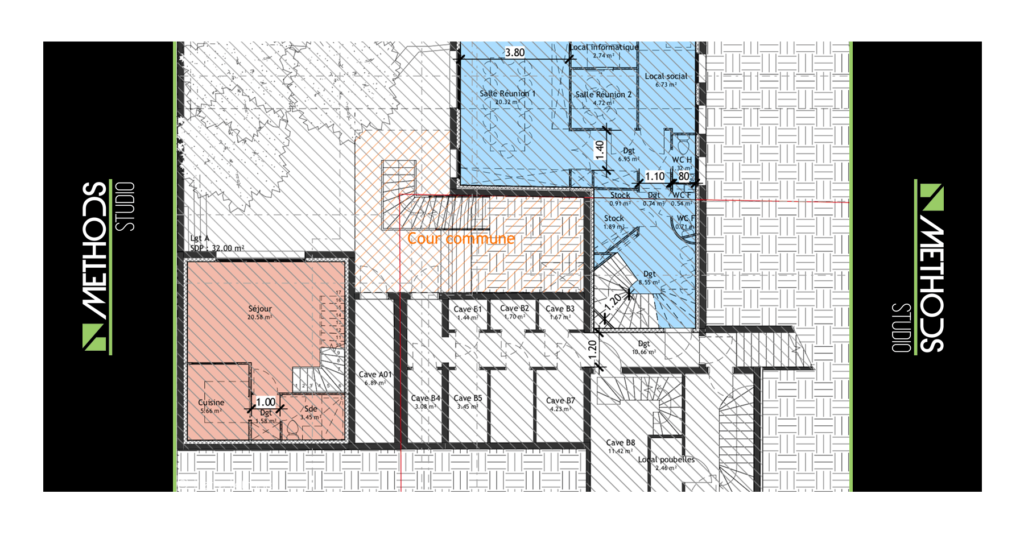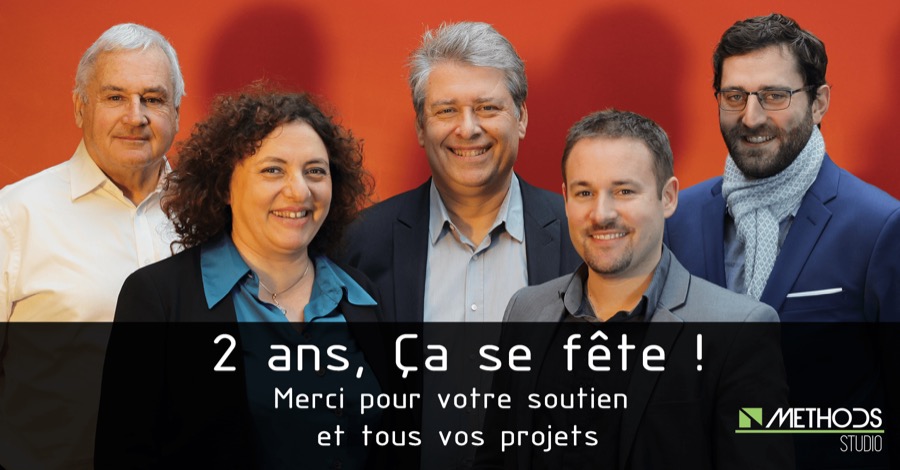Here we go, you are embarking on THE project of your life: your new home. Carrying out work for a new house or in a renovation project is not always easy. That's why you have to surround yourself with the best trades! Among them, the architect who will both draw up the plans for your house and accompany you at every stage of your construction project.
The first meeting is important as it lays the foundations for your working relationship. Methods Studio explains the five key elements to discuss with your future architect during this first meeting.
Did you know that thearchitect must be qualified to practice? This is a regulated profession, and there are laws as to what constitutes proper qualifications.Why? Because while the architect must of course work in the best interests of the client, they must also ensure that the collective interest is respected : that your project is in keeping with its environment.
The architect can then become involved in various stages of your project. From the choice of the site to the feasibility study, from the design to the selection of the various service providers, or even to the administrative and technical procedures.
1. Discuss your construction project with your architect

Your first meeting is coming! During this first interview, you must describe your project to the architect: what do you want to do? What is its nature: a new construction? A renovation? An extension or a transformation? A renovation of an existing house to make it more modern, an extension of your current home?
Depending on what you are looking for, the architect will then draw up a realistic and achievable project with you.
This is a crucial step to ensure the architect really understands what you are looking for. It is important this is clear from the outset. They need to understand your project, your expectations, and your wish list. Don’t keep any information back. Right from this first meeting you need to tell your architect about where your plot of land is located, the current surface area of your home, which way it faces etc. All these details are key.
The architect will then have a better idea of what is possible, how the building or renovation work can be carried out, and how to optimize your project.
Nothing should be overlooked. When presenting your situation, you must tell the architect everything you are looking for from this project and any problems that may need to be overcome. As with a lawyer, you shouldn't hide anything from them. It is then up to them to sort through the information you provided.
2. Explain the service you seek
What do you expect from your architect? Remote advice, supervision of all the work from A to Z with full support or only the realization of the construction plans? At what point in your construction, or your renovation, would you like to see it intervene?
Know that an architect, architect-builder, is able to accompany you from the first sketches of your project until the construction and the handing over of the keys. So why not enjoy it?!
This step is also important for your architect, because it is what will allow them to define what they are to do and just how much support they can offer. This will be very important to them as they examine your project and calculate their fee.
Know what you expect of him to have the most effective and unambiguous relationship possible. Either provide a list of what you need from your architect or place the entire project in their hands from the initial sketches to the handing over of the keys. The decision as to what you want from them is yours and yours alone.
3. Inform your architect of your budget

What is your budget ? This information is key to the whole project. The architect’s role is to come up with plans for your house that meet your needs and your expectations but are also within your means. They need to make sure they do not exceed the budget and will suggest solutions adapted to any financial constraints you may have. But the project remains yours; you remain in control of the budget.
For the architect, if you entrust him with a "small" budget, he will have it in mind from the start and will take care from the start to "tighten" everything (the surfaces, be vigilant with the consultations of the companies, avoid work additional… So many elements to take into account initially.) By clearly defining your budget, the architect will be able to offer you adapted solutions upstream.
The qualities and skills of your architect will then be put to the test to find the best compromises.
You can ask them about their fees during this first meeting of course. But be aware that they will probably not be able to give you an exact figure until they have studied your case. Indeed, the first meeting with your architect allows you to define the main lines of your project. And it is on the basis of this that they will then be able to assess their fees.
4. 4. Requesting references
Based on your budget, you should ask your future architect for references. That is to say other projects their company has carried out for the same budget. You will take advantage of these references to see if he has a very particular style or on the contrary very diverse, and if you like it.

Their style, approach, and responses to previous clients will help you conceptualize your architect's work. However, each project is different, and while some approaches may be similar, not everything will be the same. The technical and aesthetic solutions for your home and that of a former client will be different.
The references requested really serve as inspiration and to help you build a trust-based relationship with your architect.
As well as references, you can visit their website and browse previous projects displayed there. Interact with your architect so that they understand your tastes; tell them what you like so that their proposal works for your personality and your expectations. Having a good feeling about your architect is essential for a successful project; a project that pleases both you and the architect. An architect who enjoys their project will be more committed to doing their best for you!
A young architect will be able to find you very creative and original solutions, which you might not think of at first. A seasoned architect will share their experience with you and suggest more down to earth solutions. It's up to you to contact them, and make up your own mind!
5. Establish deadlines with the help of your architect
Any project takes time, yours too. Construction and renovation require permits and the presence of various contractors which can impact on deadlines. Establish a backplanning while keeping in mind that nothing is set in stone.
To do this, ask your architect questions about how long the project will take. This will depend on its size and complexity. For a medium-sized site, allow at least three months of study. For a more complex project, a few extra weeks or months. Your architect will be able to advise you. The work will then be spread over several months. Again, ask for advice in establishing your backplanning.
In conclusion, during the first meeting with your architect, the most important thing is for you to provide as much information as possible. Think about the various points listed in this article, come up with ideas, and put them down on paper in order to clearly define the basics of the project. The architect will then be able to provide you with faster and more detailed feedback.
Calling on an architect will allow you to save time throughout your project and will be of considerable help in administrative procedures (building permits, prior declaration of work, and demolition permits etc.). By offering you their creative touch, they will create the emotion that will lift your home from normal to exceptional. This first meeting is a major step in your future collaboration. Don't neglect it!
The Methods Studio team
follow us on LinkedIn
Contact us at contact@methods-studio.fr
www.methods-studio.fr




